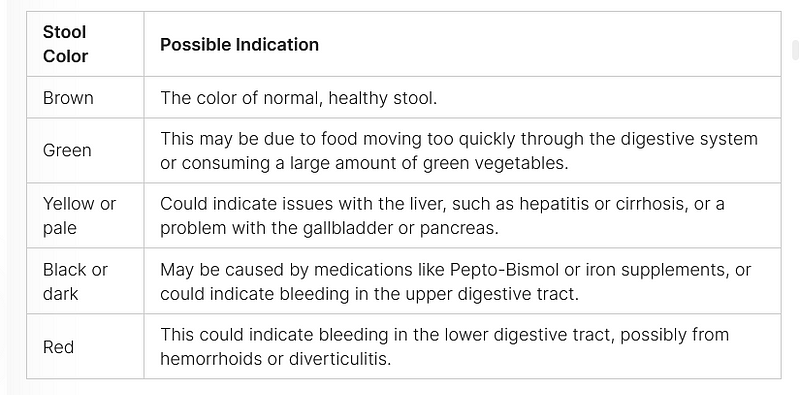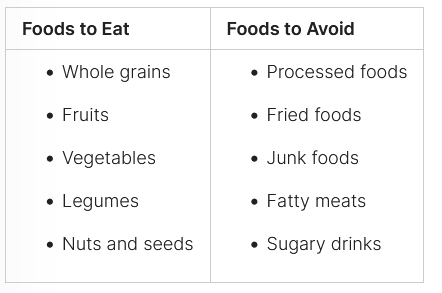Have you ever looked at your stool and wondered what it might reveal about your health? It turns out, quite a lot! Your stool can provide valuable insights into the state of your digestive system and overall well-being.
In this article, we will explore the fascinating link between your stool and your health. We’ll discuss the appearance, texture, timing, and odor of your bowel movements, as well as what to do if you notice concerning changes.
By understanding what your stool says about your health, you can take an active role in maintaining your well-being. So let’s dive in!
Key Takeaways:
- Your stool can provide important clues about your digestive health and overall well-being.
- By paying attention to the characteristics of your bowel movements, you can become more proactive about your health.
- If you notice persistent or concerning changes in your stool, it’s important to seek the advice of a healthcare professional.
- Factors such as diet, hydration, and lifestyle choices can impact the appearance and quality of your stool.
- Understanding what’s normal for you is key to recognizing potential health issues early on.
The Basics of Healthy Bowel Movements
Before we dive into what your stool can reveal about your health, let’s establish what a healthy bowel movement looks like. Depending on your diet and other factors, bowel movements can vary widely in appearance, frequency, and texture. However, there are several key characteristics of healthy stool to keep in mind:
- Color: Normal stool color can range from light yellow to dark brown. If you notice significant changes in color, such as bright red or black stool, it could indicate a health issue.
- Consistency: Healthy stool is typically soft and easy to pass, without being watery or hard. Avoid straining or pushing too hard when using the bathroom, as this can cause hemorrhoids or other issues.
- Frequency: Some people may have bowel movements multiple times a day, while others may only go every other day. As long as you are consistent in your bowel habits and not experiencing discomfort or other issues, both patterns are generally considered normal.
- Shape: A healthy stool is usually shaped like a smooth, soft sausage, with tapered ends. If your stool is consistently pencil-thin or has other unusual shapes, it could signal an underlying problem.
- Size: The size of your stool can vary based on your diet and how much you eat. However, healthy stool is typically about 1–2 inches in diameter and 18 inches long.
If you are experiencing persistent issues with your bowel movements, such as chronic diarrhea or constipation, it’s important to speak with your healthcare provider. Changes in bowel habits can sometimes indicate serious health issues, so don’t hesitate to seek medical attention if you have concerns.
Say goodbye to digestive issues and hello to smooth bowel movements with this proven formula! Restore your gut lining and promote the growth of beneficial bacteria for optimal digestion. Click the here to learn more
Understanding Stool Color
Believe it or not, the color of your stool can be a helpful indicator of what’s going on inside your body. The typical color of stool is brown, which results from a combination of bile, bacteria, and other substances that are present in the digestive system. However, stool color can vary from person to person and depend on several factors.
Here are some of the most common stool colors and what they might suggest:

It’s worth noting that certain foods or supplements can also impact the color of your stool. For example, consuming beets can turn your stool a reddish color, while taking iron supplements can make it appear black.
If you notice a sudden and significant change in stool color, it’s important to talk to your healthcare provider. They can help you determine if there’s an underlying issue that needs to be addressed. (Related: What do different stool colors mean? Follow up here)
Exploring Stool Consistency and Texture
As we’ve seen, the color of your stool can provide valuable insights into your digestive health. However, the texture and consistency of your stool can also reveal important information. Let’s take a closer look at what different stool consistencies and textures might indicate:
Hard Stools
If your stool is hard and difficult to pass, it may be a sign of constipation. This can occur when you’re dehydrated, not eating enough fiber, or not getting enough exercise. If you experience constipation regularly, it’s important to make dietary and lifestyle changes to promote regular bowel movements.
Loose Stools
On the other hand, loose stools can indicate that your digestive system is moving too quickly and not absorbing enough water from your feces. This can be caused by a variety of factors, including infections, food intolerances, or medication side effects. If you experience persistent loose stools, it’s important to discuss them with your healthcare provider.
Mushy Stools
Mushy stools may be a sign that your body isn’t digesting fat properly. This can be caused by a condition called malabsorption, which can be caused by factors such as celiac disease, inflammatory bowel disease, or pancreatic issues. If you experience mushy stools frequently, it’s important to speak with your healthcare provider to explore the underlying cause.
Sticky Stools
Stools that stick to the toilet bowl or are difficult to wipe may be a sign of excess mucus or fat in your feces. This can be related to conditions such as Crohn’s disease or ulcerative colitis, which causes inflammation in the digestive tract. It’s important to speak with your healthcare provider if you experience sticky stools regularly.
In summary, paying attention to the consistency and texture of your stool can provide important clues about your digestive health. If you experience persistent changes in your stool, talk to your healthcare provider to explore the potential underlying causes.
Experience optimal digestion and effortless bowel movements with our proven formula! Say goodbye to discomfort and hello to a healthy gut. Check it out now
Frequency and Timing of Bowel Movements
The frequency and timing of your bowel movements can tell you a lot about your digestive health. Regularity is key when it comes to healthy bowel movements. While a healthy range can vary, most people should have a bowel movement at least once a day.
Many factors can influence bowel movement patterns, including diet, physical activity, and stress levels. Changes in routine, such as travel or a disruption in your daily routine, can also impact bowel movements.
Bowel Movement Patterns
It’s important to pay attention to your bowel movement patterns. If you notice a persistent change in frequency or timing, it could be a sign of an underlying health issue. Here are some common bowel movement patterns:
- Regular: If you consistently have a bowel movement at roughly the same time each day, you have a regular bowel movement pattern. This is a sign of a healthy digestive system.
- Irregular: If you have bowel movements that are unpredictable and inconsistent, this is considered an irregular bowel movement pattern. This could be a sign of an underlying condition, such as irritable bowel syndrome (IBS), or a diet lacking in fiber.
- Constipation: If you have fewer bowel movements than usual, with stools that are hard and difficult to pass, you may be experiencing constipation. This can be caused by a lack of fiber, dehydration, or certain medications.
- Diarrhea: If you have loose or watery stools, you may be experiencing diarrhea. This can be caused by a viral or bacterial infection, food intolerances, or medications.
- Alternating: If you alternate between constipation and diarrhea, you have an alternating bowel movement pattern. This could be a sign of IBS or other digestive conditions.
If you experience a persistent change in bowel movement patterns, or if you have concerns about the frequency or timing of your bowel movements, it’s important to speak with your healthcare provider.
Unusual Stool Odors
It’s not just the appearance of your stool that can indicate health issues — the smell can also provide valuable clues. While everyone’s bowel movements have a distinct odor, some unusual bowel odors may warrant further investigation.
For example, foul-smelling stool can be a sign of a malabsorption disorder, such as celiac disease or lactose intolerance. These conditions prevent the body from properly digesting certain nutrients, leading to unpleasant-smelling stool.
In some cases, sweet-smelling stool can be a sign of diabetes. This occurs when the body cannot properly break down glucose, leading to elevated levels in the blood and urine.
If your stool has a particularly strong odor or smells markedly different from your usual bowel movements, it’s worth discussing with your healthcare provider.
Pro Tip: Certain foods, such as garlic, onion, and spicy dishes, can temporarily affect the smell of your stool. But if you notice a consistent and unusual odor, it’s important to mention it to your doctor.
Analyzing Stool Size and Shape
Believe it or not, the size and shape of your stool can be an essential indicator of your digestive health. While everyone’s bowel movements are unique, some common characteristics can be helpful to know about.
Stool size can be influenced by various factors, such as your diet, hydration, and lifestyle choices. In general, stool should be easy to pass and should not cause discomfort or pain. If you’re straining excessively or experiencing frequent constipation, it may be a sign of an underlying issue.
Large Stools
If you’re passing larger stools than usual, it could be an indication that you’re not fully digesting your food. This could be due to a lack of digestive enzymes or stomach acid, which can make it harder for your body to break down and absorb nutrients. Large stool may also be a sign of constipation or an obstruction in your colon.
Thin Stools
On the other hand, passing a thin or pencil-like stool could be a sign of an obstruction in your bowel. This could be due to inflammation, polyps, or even cancer. If you notice consistently thin stool, it’s important to speak with your healthcare provider as soon as possible.
Stool Shape
The shape of your stool can vary widely, but a healthy stool typically has a cylindrical shape with a smooth surface. If your stool has a different shape or texture, it could be an indication of an underlying issue.
One common issue is a hard, lumpy stool that can be difficult to pass. This is often a sign of dehydration or a lack of fiber in your diet. On the other hand, loose or watery stool could be an indication of diarrhea or an underlying infection.
This effective formula not only restores the health of your gut lining but also fosters the growth of essential bacteria crucial for proper digestion. Explore more about it here
What Can You Do?
If you’re experiencing any unusual stool size or shape, it’s important to speak with your healthcare provider. They can help you evaluate the issue and recommend appropriate treatment options, if necessary.
In general, you can support healthy stool by eating a balanced diet that is high in fiber, drinking plenty of water, and staying physically active. These habits can help keep your digestive system functioning smoothly and prevent issues like constipation or diarrhea.
The Role of Mucus in Stool
Mucus is a viscous, gel-like substance that is naturally produced by the body to lubricate and protect the lining of the digestive tract. Small amounts of mucus in your stool are generally normal, but when you notice a significant increase in the amount or frequency of mucus, it may be a sign of an underlying health issue.
In some cases, the presence of mucus in your stool may be a result of inflammatory bowel disease (IBD). IBD is a chronic condition that leads to inflammation in the digestive tract and can cause symptoms such as diarrhea, abdominal pain, and rectal bleeding.
Another possible cause of mucus in stool is an infection. Certain bacterial, viral, and parasitic infections can lead to increased mucus production in the digestive tract and may also cause diarrhea, cramping, and other symptoms.
Additionally, food intolerances or allergies can cause an increase in mucus production. For example, lactose intolerance or celiac disease may lead to inflammation of the digestive tract, resulting in excess mucus in the stool.
If you notice a significant increase in the amount or frequency of mucus in your stool, it’s important to speak with a healthcare professional to determine the underlying cause and appropriate treatment.
Blood in Stool: Possible Causes
Finding blood in your stool can be concerning, but there are various potential causes behind this common symptom.
One possible reason for rectal bleeding is anal fissures, which are small tears in the skin surrounding the anus. Hemorrhoids, or swollen veins in the rectum, can also lead to blood in the stool, as can diverticulitis, which is inflammation or infection in small pockets that form in the colon.
In some cases, more serious conditions like inflammatory bowel disease or colorectal cancer may cause rectal bleeding. Inflammatory bowel disease is a chronic inflammation of the intestines that can lead to ulcers and tissue damage, while colorectal cancer is a malignancy that affects the colon or rectum.
If you experience rectal bleeding or notice blood in your stool, it’s important to speak with a medical professional. They can help identify the underlying cause and recommend appropriate treatment options.
When to Seek Medical Attention
While many changes in stool color, consistency, or frequency can be traced back to diet or lifestyle factors, some variations may require medical attention. Here are some signs that you should seek the advice of a healthcare professional:
- Blood in the stool: If you notice blood in your stool, it’s essential to see a doctor. This could indicate a serious condition, such as colon cancer or inflammatory bowel disease.
- Unexplained weight loss: If you are losing weight without trying, it could be a sign of a digestive issue that requires attention.
- Severe abdominal pain: If you experience debilitating pain, especially if it’s accompanied by nausea or vomiting, it’s time to seek medical attention.
- Consistently abnormal stool: If you notice consistent changes in your bowel movements that last for more than a few days, it’s best to talk to a healthcare provider.
Don’t Ignore Concerning Stool Changes
If you experience any of the above symptoms or other concerning changes in your stool, it’s important to seek medical attention promptly. Remember that early detection is key to effective treatment and a positive outcome. Don’t hesitate to discuss any changes with your healthcare provider, as they can provide guidance and support to help you maintain your digestive health.
Lifestyle Factors Affecting Stool
While many factors can impact your stools, lifestyle choices such as diet and hydration play a key role. Proper nutrition and hydration are crucial for digestive health and can help promote regular bowel movements.
Diet and Stool
Your diet can greatly affect the appearance and consistency of your stools. Consuming a diet high in fiber, such as whole grains, fruits, and vegetables, can help prevent constipation and promote healthy bowel movements. On the other hand, a diet low in fiber and high in processed foods can lead to harder stools and difficulty passing them.

Hydration and Stool
Drinking enough water is essential for healthy digestion, as it helps keep stools soft and easy to pass. Dehydration, on the other hand, can lead to harder stools and constipation. It is recommended to drink at least 8 glasses of water per day and to avoid excessive consumption of caffeine and alcohol, as they can contribute to dehydration.
Pro Tip: Try incorporating herbal teas, fruit-infused water, or plain water with lemon or cucumber for added hydration benefits.
Lifestyle Impact on Stool
Other lifestyle factors, such as stress and physical activity, can also affect your bowel movements. High levels of stress can lead to changes in bowel habits, while regular exercise can help promote healthy digestion and alleviate constipation.
- Incorporate stress-reducing activities into your daily routine, such as yoga, meditation, or deep breathing exercises.
- Aim to engage in moderate exercise for at least 30 minutes per day, such as walking, jogging, or cycling.
By making small changes to your lifestyle, you can promote healthy digestion and ensure regular and consistent bowel movements.
Say goodbye to digestive issues and hello to smooth bowel movements with this proven formula! Restore your gut lining and promote the growth of beneficial bacteria for optimal digestion. Click the here to learn more
Conclusion
Understanding the messages your stool sends about your health is crucial for maintaining overall wellness. By paying attention to the appearance, texture, and frequency of your bowel movements, you can gain valuable insights into your digestive health and detect potential issues early on.
When to Seek Medical Attention
While not every change in your stool requires immediate medical attention, certain red flags warrant a visit to your healthcare provider. If you experience persistent diarrhea or constipation, rectal bleeding, or unexplained weight loss, it’s important to seek professional advice promptly.
Related: Avoid These 5 Metabolism-Slowing Foods for Optimal Health and Efficiency
Impact of Lifestyle Factors
Your diet, hydration levels, stress, and other lifestyle factors can have a significant impact on the quality of your stool. By making healthy choices and adopting good habits, you can support a well-functioning digestive system and minimize the risk of developing gut-related health issues.
Remember, any persistent or concerning changes in your stool should be discussed with a healthcare professional promptly. By staying attuned to your digestive health and seeking medical advice when needed, you can maintain optimal wellness and enjoy a better quality of life.



Post a Comment
0Comments